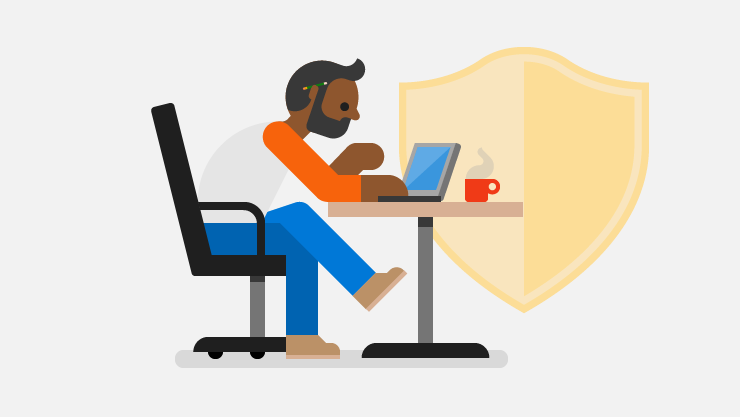Is The Mac App Firewall Enough To Stop Hackers
Security Windows 10 Windows 8.1 Microsoft account dashboard More...Less
Keeping your computer secure helps you avoid malware and direct hacking attempts designed to steal your personal information. Here are some ways you can help reduce your online risk when you use your computer at home.

Tips to protect your computer
-
Use a firewall
Windows has a firewall already built in and automatically turned on. -
Keep all software up to date
Make sure to turn on automatic updates in Windows Update to keep Windows, Microsoft Office, and other Microsoft applications up to date. Turn on automatic updates for non-Microsoft software as well, especially browsers, Adobe Acrobat Reader, and other apps you regularly use. -
Use antivirus software and keep it current
If you run Windows you have Windows Security or Windows Defender Security Center already installed on your device. -
Make sure your passwords are well-chosen and protected
To learn how, see Protect your passwords. -
Don't open suspicious attachments or click unusual links in messages.
They can appear in email, tweets, posts, online ads, messages, or attachments, and sometimes disguise themselves as known and trusted sources. -
Browse the web safely
Avoid visiting sites that offer potentially illicit content. Many of these sites install malware on the fly or offer downloads that contain malware. Use a modern browser like Microsoft Edge, which can help block malicious websites and prevent malicious code from running on your computer. -
Stay away from pirated material
Avoid streaming or downloading movies, music, books, or applications that do not come from trusted sources. They may contain malware. -
Don't use USBs or other external devices unless you own them
To avoid infection by malware and viruses, ensure that all external devices either belong to you or come from a reliable source.
Protect your personal information online
Your privacy on the internet depends on your ability to control both the amount of personal information that you provide and who has access to that information. Find out how to protect your privacy on the internet.
Protect yourself from scams
When you read email, use social media, or browse the web, you should be wary of scams that try to steal your personal information (also known as identity theft), your money, or both. Many of these scams are known as "phishing scams" because they "fish" for your information. Find out how to protect yourself from phishing scams and avoid tech support scams.
Prevent and remove malware
One important step toward greater workplace security is to protect your computer against malware.
Windows Security
Windows Security (or Windows Defender Security Center in Windows 8 or early versions of Windows 10) is built in to Windows and provides real-time malware detection, prevention, and removal with cloud-delivered protection. It is intended for home, small business, and enterprise customers. For more info, see Help protect my computer with Windows Security.
Other ways to remove malware
To assist all Windows customers, including those who are not running Windows Security, Microsoft provides Microsoft Defender Offline.
Microsoft Defender Offline
Microsoft Defender Offline runs outside of Windows to remove rootkits and other threats that hide from the Windows operating system. This tool uses a small, separate operating environment, where evasive threats are unable to hide from antimalware scanners.
With Windows 10 and 11, Microsoft Defender Offline is built in to the operating system and can run from Windows Security. It is provided as a separate download for previous versions of Windows.
Learn more about Microsoft Defender Offline
Need more help?
Is The Mac App Firewall Enough To Stop Hackers
Source: https://support.microsoft.com/en-us/windows/keep-your-computer-secure-at-home-c348f24f-a4f0-de5d-9e4a-e0fc156ab221
Posted by: sosapriece.blogspot.com

0 Response to "Is The Mac App Firewall Enough To Stop Hackers"
Post a Comment